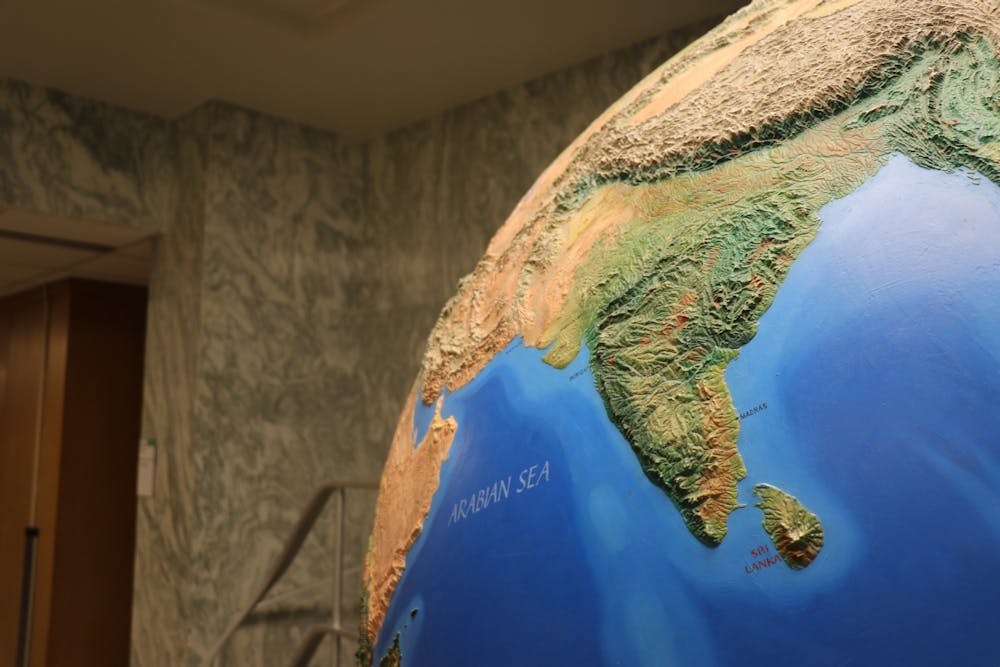I know being an IU student in 2023 is sometimes stressful. Our schedules are busy, tests and midterms are getting closer and the work never ends.
On top of that, our generation is exposed to an endless supply of accessible media. We constantly see the events of the world unfold right in front of us, whether it be the escalating tensions with Russia and China, our own country’s domestic issues or constant reminders of the looming danger of climate change.
It is hard to have hope despite all of this — it really is. How are we supposed to have hope for the future when all we see in the world is terrible news and implications of monumental crises that will occur in the coming years?
On top of balancing this, we’re expected to continue our work as students, and we are expected to keep going even though the world we see is facing tragedies.
But what I’ve learned is there is some hope. The way to find that hope is to take a break from stressing about the future and to find some time to look back at history and learn about the stories of how everyday people managed to keep going, despite being faced with immeasurable challenges.
[Related: Black Voices: Artist George McCalman writes new Black history book]
The first story I want to focus on goes way back — thousands of years ago, in fact. This is the story of the Austronesian peoples. Around 5,000 years ago, these people began to migrate across the Indo-Pacific area.
Despite having very limited technologies, the Austronesian people used their knowledge and willpower to cross-navigate the Pacific Ocean. Despite mother nature working against them, they still pulled it off. Even today, with our advanced technology, we still have struggles maneuvering through the oceans.
The Austronesian people had no computers, no GPS, no electricity and no massive ships. They had simple boats and simple technology, but their knowledge of navigating and hopes for the future allowed them to do the impossible, despite the harsh waves and endless miles of open ocean.
Another story that should remind you to hope is the story of the Revolutionary War. Jumping forward thousands of years from the Austronesian story, our country started with 13 colonies. They weren’t unified like how we were told growing up. All of these states had different identities, different cultures, different social beliefs and issues.
But they all had in common the desire to break free from the largest empire ever known to humanity: the British Empire. Despite the British having a superior navy, massive firepower and an abundance of troops, the colonists somehow pulled it off.
The soldiers were often malnourished, our numbers in soldiers were always fewer than the British, and our weapons were far inferior to theirs.
But they still pulled through, they had a vision and a hope for the future and they achieved it.
Finally, I want to focus on the story of two individuals: Marcellus Neal and Frances Marshall. These names should sound familiar, as they are the two IU alums in which the Neal-Marshal Black Culture Center is named.
They were the first African American man and woman to graduate from IU. Neal graduated in 1895 with an A.B. in mathematics and Marshall graduated in 1919 with an A.B. in English.
[Related: OPINION: Being in a rut doesn't mean you're a bad student]
We still live in a world where racism exists but imagine living in the 19th century and attending a university as an African American. The U.S., at that time, still had Jim Crow laws, the system was built to push down African Americans and tried to prevent them from entering schools; yet Neal and Marshall still achieved their goals. Despite living in a racist society and segregated world with the odds stacked against them, Marcellus and Frances achieved greatness.
If you ever feel like you're going to burn out as a student, just look at history. There are countless stories of people achieving their goals, even if the entire world was against them.
You can achieve your goals, too. Just keep that hope for the future alive.
Nick Moser (he/him) is a senior at IU majoring in English and minoring in political science and film production.






